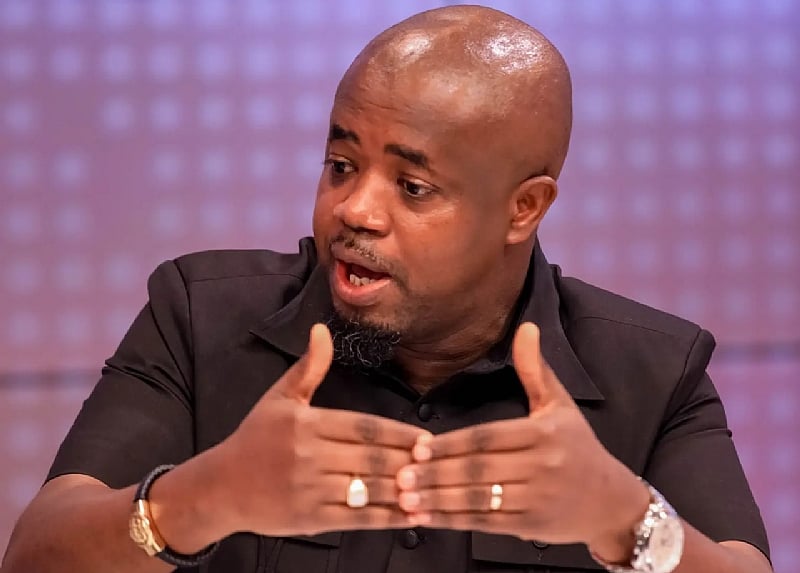The controversy surrounding the ambulance procurement trial involving former Deputy Finance Minister, Dr. Cassiel Ato Forson, has taken a new turn with accusations of witness tampering leveled against the former Attorney General and Minister for Justice, Godfred Yeboah Dame. Edudzi Tameklo, Acting Chief Executive Officer of the National Petroleum Authority (NPA), has publicly called for Mr. Dame to seek spiritual forgiveness for his alleged role in the trial, suggesting a deliberate conspiracy to imprison Dr. Forson. Mr. Tameklo’s statement underscores the gravity of the allegations and the perceived injustice surrounding the case, highlighting the potential damage to the credibility of Ghana’s legal system.
At the heart of this controversy lies an audio recording admitted as evidence during the trial. This recording allegedly captures Mr. Dame attempting to influence the testimony of Richard Jakpa, the third accused person in the case. The content of this recording has ignited significant public debate and has led to formal accusations of professional misconduct against Mr. Dame. The alleged conversation between Mr. Dame and Mr. Jakpa appears to suggest an attempt to manipulate the trial’s outcome, raising serious questions about the integrity of the prosecution’s actions.
The controversy has escalated beyond accusations and public commentary, culminating in a formal complaint lodged with the General Legal Council (GLC) by Daniel Kwame Ofosu-Appiah, a Ghanaian citizen. Mr. Ofosu-Appiah’s petition accuses Mr. Dame of breaching professional ethics during the trial, specifically citing the audio recording and accompanying WhatsApp messages exchanged between Mr. Dame and Mr. Jakpa. The complaint alleges that these communications constitute unethical conduct and violate the Legal Profession (Professional Conduct and Etiquette) Rules, 2020.
The specific violations outlined in the complaint include attempts to influence witness testimony, compromising the integrity of the judicial process, and displaying dishonesty in professional dealings. These allegations, if proven, strike at the core principles of legal practice and underscore concerns about the fairness and impartiality of the trial proceedings. The complaint argues that Mr. Dame’s actions, as evidenced by the audio recording and WhatsApp exchanges, represent a serious breach of trust and undermine the principles of due process.
Mr. Ofosu-Appiah’s petition calls for the GLC’s Disciplinary Committee to investigate the matter thoroughly and, if warranted, impose sanctions ranging from suspension to disbarment. The petition emphasizes the urgent public interest in upholding the credibility of Ghana’s justice system. The petitioner argues that holding Mr. Dame accountable for his alleged actions is crucial to restoring public confidence in the legal profession and ensuring that justice is served without prejudice.
This case has brought into sharp focus the importance of ethical conduct within the legal profession and the potential repercussions of misconduct. The allegations against Mr. Dame, if substantiated, could have far-reaching consequences for his career and reputation. Moreover, the outcome of the GLC’s investigation will send a strong message about the legal community’s commitment to upholding the highest standards of integrity and accountability. The case has already sparked significant public discourse and underscores the need for transparency and ethical conduct in all legal proceedings to maintain the integrity of Ghana’s justice system. The final decision of the GLC will undoubtedly have a profound impact on public perception of the legal profession and its ability to uphold the principles of justice and fairness.














